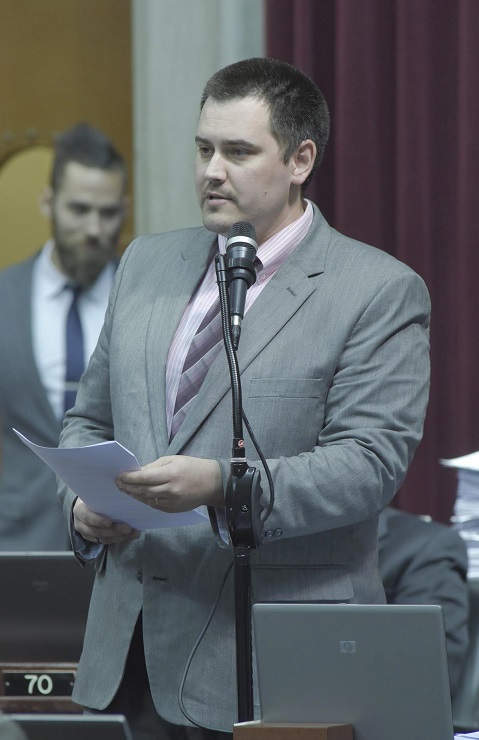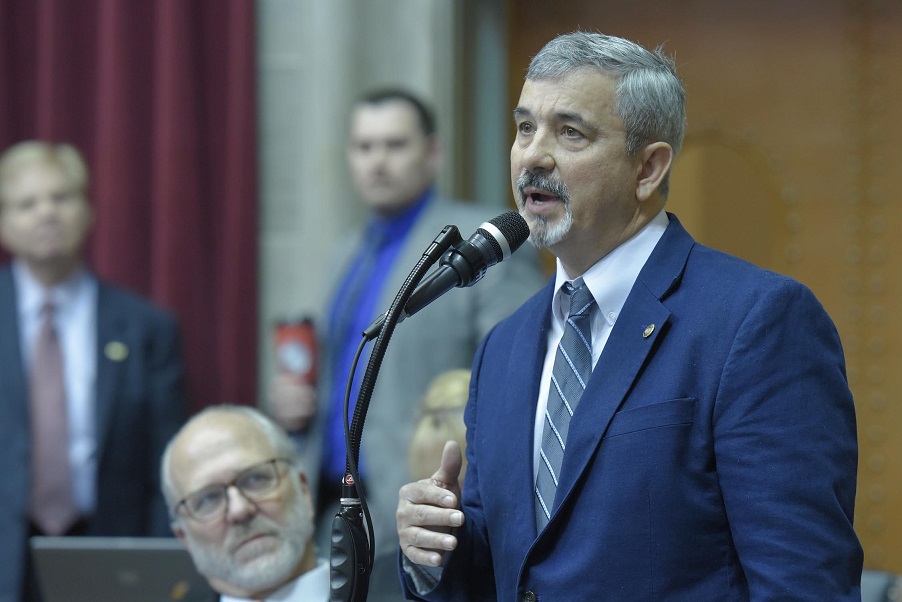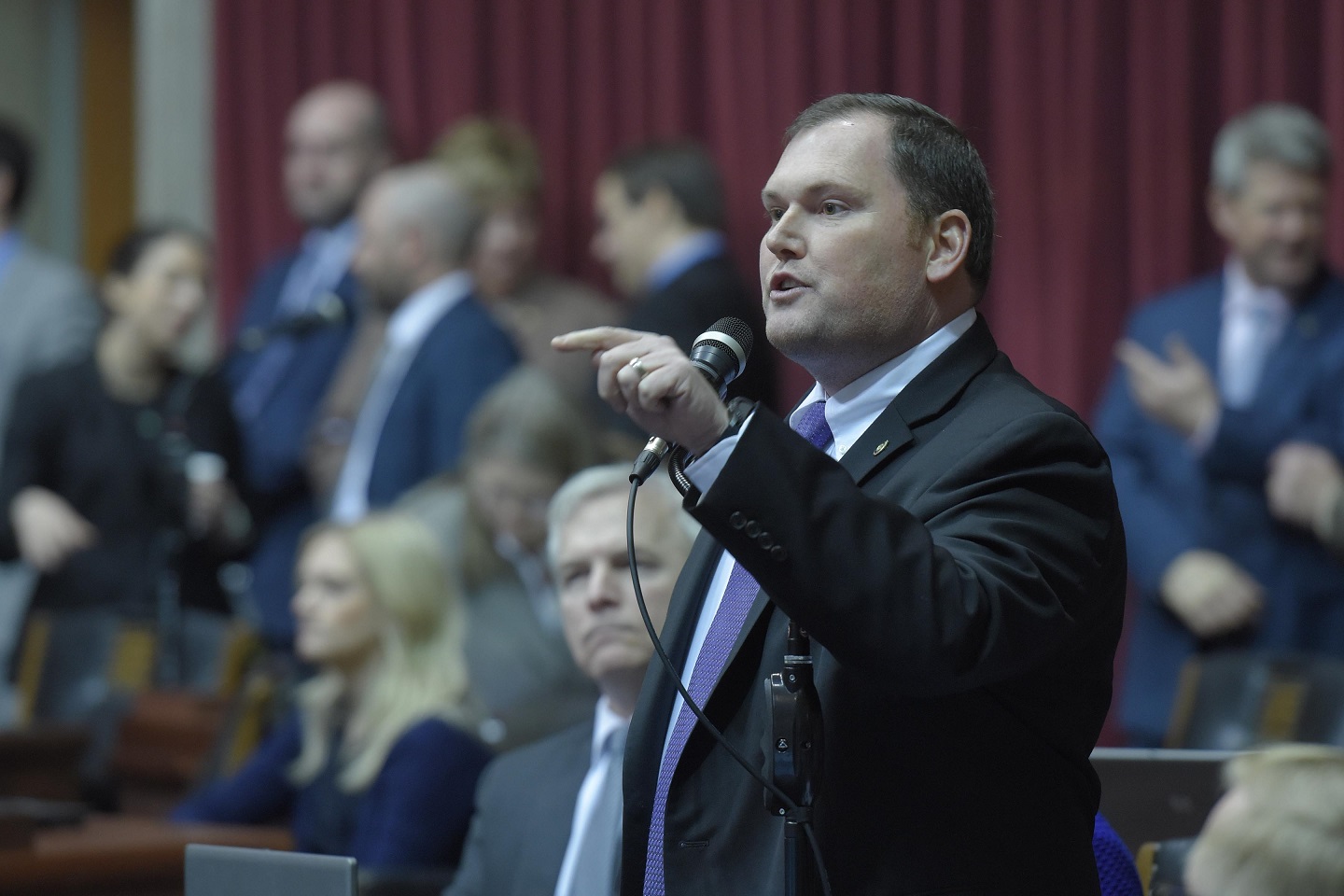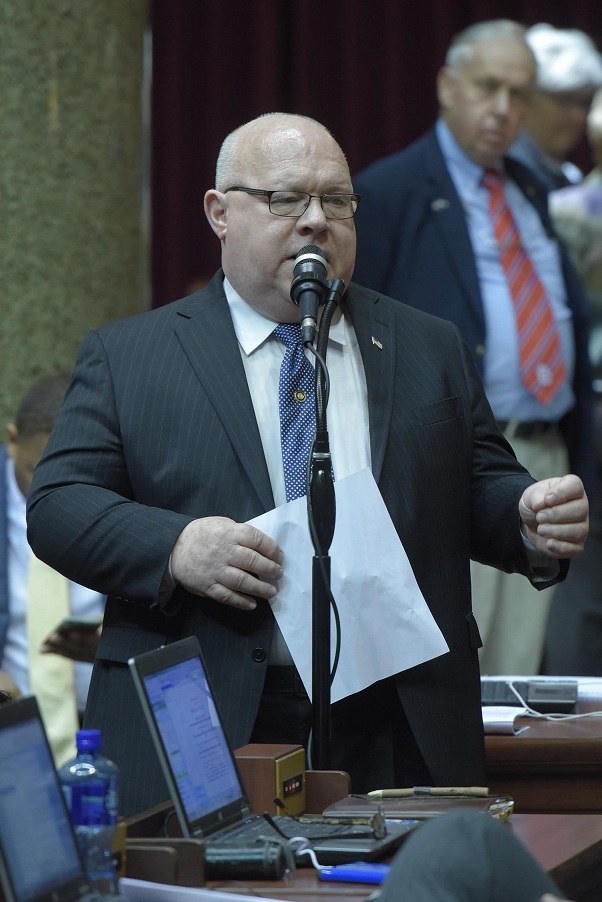The state House has for the first time debated the Missouri Nondiscrimination Act (MONA), which would prevent discrimination based on sexual orientation or gender identity in housing or employment.

Missouri law already prevents discrimination for other factors, such as race or religion. MONA would add sexual orientation and gender identity to the law’s definition of “discrimination.”
The proposal has been heard in House committee hearings and debated in the state Senate, but this was the first time it was debated on the House Floor.
Farmington Republican Kevin Engler offered MONA.
“We’re one of the few states, Mr. Speaker, that you can fire somebody for just cause if you find out they’re gay. For just cause. For just cause. I think that’s sick. We should be disgusted that we have that policy in this state,” said Engler. “We need to, as this body, take a stand that hate has no place in Missouri.”
Kansas City representative Randy Dunn (D), who is openly gay, said he has experienced discrimination and Missouri needs MONA.
“One part of me as a black man, I do have those protections [against discrimination] under current statute but as a gay man I don’t, so there’s a duality there,” said Dunn. “This is a real issue. People are discriminated against every day because of who they are, who they love, who people think that they are, and that is absolutely not right and that is not what Missouri stands for.”
Frankford Republican Jim Hansen said he supports MONA in spite of some of the tenants of his faith.
“The Bible says it’s a sin. I agree with the gentleman from Cass on that. I don’t believe in gay marriage, but I don’t control that. That’s their choice. Somebody else will judge that. But I also don’t think that a preacher should marry maybe a person that’s been married five times either. That’s a sin in the Bible. So who are we going to pick and choose of how to handle and how to discriminate against?” asked Hansen. “This is overdue. I mean, we’re living in the dark ages and we’re standing up here still fighting this.”

Some Republicans spoke in opposition to the amendment, but most representatives who chose to speak on it were supportive. It did not come to a vote. Engler withdrew it saying he wanted to have the debate, but he believed its passage would result in the failure of the bill it would have been attached to, and because many representatives would have voted against it using their support of the underlying bill as an excuse to vote no.
He asked Republican leadership to bring the issue back next year, which will be his last in the legislature due to term limits.
“In the Senate … if you did the full boat and you served your 16-years [in the legislature] it was a tradition to let you at least debate a bill of your choice on the floor. Mister Speaker I hope that you would honor that next year, and the bill that I’m going to ask for is this bill. I would like it debated on the floor on its own merits and I would like it voted on.”
Another, similar amendment was voted down after Engler and other supporters of the underlying bill said the amendment’s passage would cause the bill to fail.














